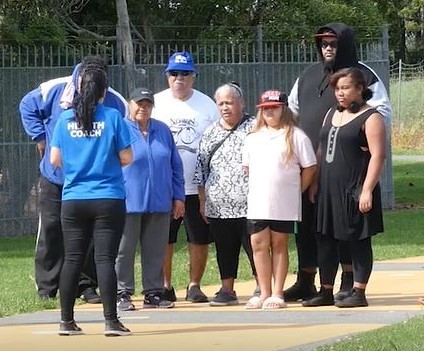

Te Tumu Waiora - te reo for ‘To head towards wellness’ is a new model of primary mental health and addictions care and support.
It aims to provide all New Zealanders experiencing mental distress or addictions challenges with access to convenient, high quality, integrated and person-centred care and support.
Read the Te Tumu Waiora overview document here
the mental health challenge
the mental health challenge
We have a mental health epidemic in New Zealand. One in five people experience mental illness or significant mental distress each year; as many as three quarters of New Zealanders will experience some degree of mental distress or addiction challenges, or both, at some point in their lives.
There are significant social and cultural risk factors. Poverty and deprivation, poor housing, family violence or neglect, social isolation and ethnic background are key determinants of mental distress and addictions issues and of poorer outcomes.
He Ara Oranga, the Government inquiry into mental health and addictions and the subsequent Government response has set the direction for future services.
The Inquiry noted ‘the striking degree of consensus, from most parts of New Zealand society, about the need for change and a new direction: an emphasis on wellbeing and community, with more prevention and early intervention, expanded access to services, more treatment options, treatment closer to home, whānau- and community-based responses and cross-government action’.
transforming mental health services
transforming mental health services
Since 2005 the Ministry of Health has funded primary mental health initiatives through Primary Health Organisations, primarily aimed at high needs groups and for those people with mild to moderate mental health need. These services vary considerably around the country, but generally involve referral for a small number of counselling sessions, with limited connection to other primary care providers. For many New Zealanders access to primary mental health services is self-funded.
The $1.9bn investment committed to mental health services in the 2019 ‘Wellbeing Budget’ will change lives and communities and allow people who need support to access it when they need it.
It includes investment of $455m to develop new frontline primary mental health services which can be accessed through general practice, iwi health providers and other community agencies over the next five years, providing support for an estimated 325,000 people by 2023/24.

About
About
Primary care organisations have been working with NGOs, DHBs, service users and international experts over the past five years to develop a new way to provide convenient, personalised care and support for people experiencing mental distress or addiction challenges.
The Te Tumu Waiora model of care is the culmination of that work.
Based on international evidence and local co-design, the new model of care provides rapid, targeted brief intervention to people who are experiencing mental distress or who need behavioural advice and support.
This service is accessed through general practice and is based around new roles in the primary care workforce – the Health Improvement Practitioner (HIP) and the Health Coach. Based in the practice, these new members of the team provide advice and support to clients based on individualised goals, promoting self-management and connecting people to other services they may need. The HIP and Health Coach work closely with local community NGO support workers, ensuring that people can access the full range of help they need to manage mental distress, encourage and maintain behaviour change and increase their wellbeing.
The new model allows ‘warm handover’. It means that a GP or nurse in the general practice can offer someone who is experiencing mental distress or addiction issues the option of seeing the HIP in the same location quickly – often immediately. A support plan is developed, with follow up as needed, tailored to individual circumstances. For some people the initial session is enough to provide the emotional or behavioural support needed.
The Health Coach works in partnership with people who need support for behavioural or lifestyle changes, promoting self-management and achievement of goals and helping them navigate and connect with other services.
The HIP and Health Coach also act as a specialist resource, enhancing the confidence and competence of GPs, nurses and other members of the team.
Keen to know more? check out these frequently asked questions.
You can read the full Te Tumu Waiora overview document here.
New roles in general practice
New roles in general practice
Traditional roles within the practice setting are enhanced as part of the Te Tumu Waiora programme and will be complemented by health coaching, Health Improvement Practitioners. In addition, where DHB contracts allow, access to NGO peer and community support workers to address wider psychosocial need; all aligned around an integrated and holistic primary and community approach to wellbeing.
Alysha Simonsen, Health Psychologist, HIP
The Health improvement practitioner
HIPs are qualified and experienced mental health professionals who have completed specialist training in the Te Tumu Waioira primary mental health model.
The HIP is part of the general practice team and sees people of all ages and at all stages of their lives and with any type of issue related to behaviour change or mental wellbeing.
The HIP’s day is scheduled so they can often see people immediately when they are in the practice and some form of support.
Consultations are typically short – less than 30 minutes and are focused on evidence-based brief interventions.
The HIP will help the patient to agree goals and put the necessary support, followup and review in place to help him or her achieve those goals.
Feedback is provided to relevant members of the general practice team and all information is integrated into the patient record.
The HIP also educates other team members and helps to develop pathways and protocols around mental wellbeing and addiction support.
Mangere Health Centre Health Coach Renee Henry spends time with her regular walking group.
The Health Coach
The Health Coach may be a registered or unregistered health practitioner who can help patients with self-management support and with achieving their goals for improved mental wellbeing or lifestyle or behaviour change.
The Health Coach offers continuity of care as well as emotional support and guidance. Coaches are part of the general practice team but also help people to navigate other services and to get access to any social and cultural support they may need.
The Health Coach will typically have half of their day unscheduled so time is available for patients needing or wanting same day appointments.
Te TUMU Waiora In practice
The model of care was first piloted in a small number of Auckland general practices in 2017 by a collaboration of ProCare Health, Total Healthcare, local DHBs and NGO partners, and with support from the Ministry of Health. Following successful evaluation, the model was extended to 23 practices across New Zealand by mid-2019.
Below are some first hand accounts of the difference this approach is making.
Te TUMU Waiora In practice
The model of care was first piloted in a small number of Auckland general practices in 2017 by a collaboration of ProCare Health, Total Healthcare, local DHBs and NGO partners, and with support from the Ministry of Health. Following successful evaluation, the model was extended to 23 practices across New Zealand by mid-2019.
Below are some first hand accounts of the difference this approach is making.
Alysha Simonsen is a health psychologist working as a health improvement practitioner in the Te Tumu Waiora programme at Auckland University Student Health. Here she reflects on one year working as a Health Improvement Practitioner.
Following Alysha, Dr Peter Woolford, a GP at Health New Lynn one of the Te Tumu Waiora pilot practices, talks about the impact of this innovative mental health support programme and what it is like for general practice to have mental health specialists as part of the general practice team.
Awhi Ora – Supporting Wellbeing, is a key part of the model where NGO support workers and peers walk alongside people in distress supporting them in increase their wellbeing in their local community. A clip explaining this approach is below
“I was nervous, she put me at ease. It was easy to talk about everything. Life, family, money; I put it all on the table. ”
Te tumu waiora collaborative
Te tumu waiora collaborative
Following the success of the Auckland pilot, seven organisations have come together to form a national Collaborative, committed to implementation of the Te Tumu Waiora (TTW) model to deliver accessible, integrated and high quality primary mental health and addictions services and improved health outcomes for their populations.
The member organisations - Northland DHB; Mahitahi Hauora; ProCare Health; Total Healthcare; Pinnacle Midlands Health Network;Tu Ora Compass Health; and Pegasus Health - together provide health services to 2.4 million New Zealanders, more than half the New Zealand population.
Initial implementation is underway in all regions, with the Te Tumu Waiora model being provided in 23 general practices by July 2019.
The Collaborative is working in partnership with service users and their family/whanau, and with NGOs, Maori health providers and workforce development organisations on roll out and future development of the model. The Collaborative members are intentionally prioritising implementation of the model in high needs areas, as well as addressing any barriers to access and ensuring that services are appropriate for their local communities.
While each region is developing services based on local needs, the Collaborative will provide leadership, infrastructure, national standards, learning and improvement support and oversight of workforce development.
Impact
Impact
An independent evaluation of the initial phase of implementation of the model in a small number of practices in Auckland was undertaken in 2018. This evaluation showed the programme was achieving the objective of offering quick access to talking therapies and other supports and achieving positive outcomes and high levels of satisfaction from service users.
Read the Synergia evaluation following the first six months of the pilot here.
“I think I’d gone to see my doctor, and he’d said about this (anxiety), we’ve got like this service now at this clinic, where you can see this lady, (name). And then, I said, oh that sounds great, and so he said I think she actually has a place like now, like in half an hour or something. So I actually went to see her, the day I went there to get some help, or get some advice or something. That was really good, I just went straight in there and had my first session.”




